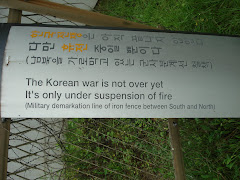Friday, May 22, 2015
“Omnia uno tempore agenda.” Julius Ceasar (Everything had to be done at once)
Well, now I am into it.
Rather: We are into it. The roller coaster of change is galumphing along some pretty dicey tracks, too, if you ask me. But this perception is very likely a projection of my own anxiety, as I am learning in my devotional reading.
Books have always been my friends, and during our Provincial Chapter meeting last week Chapter members were strongly encouraged to read two books. The first is William Bridges “Managing Transitions: Making the Most of Change.” So I downloaded the third edition to my Kindle and have been plowing through all the business jargon. Talk of managers, employees, products and competition is a bit dull for me, but it requires no big effort to see how patently necessary it is that we brothers read this book.
Bridges validates the confusion and chaotic feelings, the creative and sometimes desolating in-between times and offers good pointers about the new beginnings. I thought of this book tonight during Evening Prayer when the psalmist in Psalm 107 says “They cried to you in their trouble…” and later: “and you brought them to the harbor they were bound for.” A warm glow spread through my chest when I prayed this. It doesn’t say exactly which harbor—but they survived to sing about it.
During Chapter we were given several voyages to speculate about. Two brothers said their farewells to the Society; where will I be in three or four years’ time? Prospective homes for the friars were suggested: “Trust me,” the Bishop said. Some brothers have found places to live singly for the time being: there’s a choice to wonder about. And we heard about some men who are determined to come aboard and voyage with us, testing their vocations to this life: it makes the heart glad.
Bridges is generous in his book, giving readers different ways to get his message. I especially love the literary bon mots that pepper the text because they are at least from people I have heard of (i.e. not CEO’s of strange-sounding corporations). And these quotes express some of the contradictory feelings I have and which Bridges thus validates by including the statements in his book. This from Ogden Nash: “What I’d like is some nice dull monotony, if anyone’s gotony.” Amen. S.A. Tartakover, a Russian chess master speaking of the chess board at the beginning of a game: “The mistakes are all there waiting to be made.” But I suppose Anne Morrow Lindbergh lays down the law, so to speak, of managing transitions: “only in growth, reform and change, paradoxically enough, is true security to be found.”
We’ve got our Strategic Plan; we have all signed on to it and taken on what we must. So now the proof of the pudding will be in the tasting of it. We have to dig into this transition to discover another home in this world which is passing away.
We were treated to another book called “When the Past is Present” by David Richo, who gave us a day-long workshop on Letting Go (let the reader understand). Rarely have I read a book written just for me! I’ve already read it twice and am now marking my copy up, thirsty for its wisdom. It speaks to me of the need to be clear about who I am reacting/responding to—present reality or somebody/place from my past? The core discipline is practicing mindfulness, naming what I’m feeling, allowing all the feelings to be my teachers and letting them go. In all of this awareness one is strengthening their spiritual awareness of the beauty of the transitory nature of life.
Br. Jude, our Minister Provincial referenced the analyst Jung in his address to chapter: God is what comes across our path, causing confusion. So definitely this time is about God, defying expectations. It is a challenge and invitation to be open to all the things I’ve talked about so glibly before: prayer, patience, and mindfulness to name three! I feel invited to wrestle with the things I carry over from my past: family and childhood experiences. As David Richo says, “to wrestle respectfully as Jacob did with the angel, until it yields its blessing. The blessing is the revelation of what we missed or lost and the grace to grieve it rather than transfer it.” Transference is natural, everybody does it, and it can wreak havoc when it is freighted with pain and negativity.
God’s grace is always apt and abundant. Scripture should always be meaningful, but sometimes my attention wanders. Yet tonight I was touched. When I am feeling tender the Spirit is there helping me. In the Gospel lesson for Evening Prayer the Spirit said to the Church in Jesus’ defense to Martha of Mary’s engaged listening: “She has chosen the better part.” Amen. God give me ears to hear you!
Pray for us!
Subscribe to:
Post Comments (Atom)






No comments:
Post a Comment